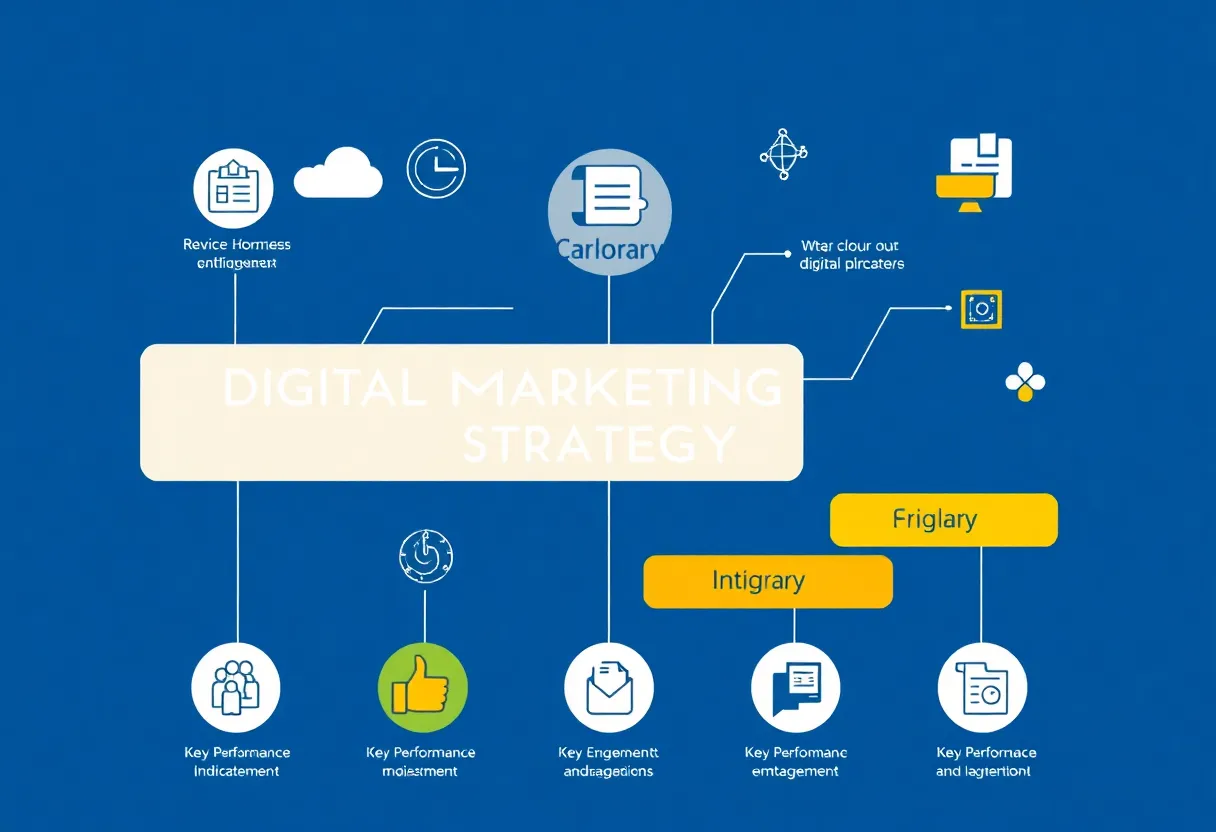News Summary
In today’s fast-paced digital marketing landscape, having a strategic framework is crucial for success. This article explores the necessity of structured approaches, how they help marketers define goals, understand audiences, and measure performance effectively. Various recognized frameworks are highlighted, emphasizing the importance of adaptability to industry trends for long-term growth.
The Importance of Digital Marketing Strategy Frameworks in Achieving Success
In the ever-changing world of digital marketing, having a solid strategic framework in place is just as essential as navigating using a trusted GPS system. Everyone knows that when you’re on a long road trip, you wouldn’t just drive aimlessly; you would input your destination and follow the mapped path. Similarly, for marketers, having a defined strategy framework not only outlines processes but also highlights critical channels and essential touchpoints throughout the buyer journey.
Why Frameworks Matter
Marketers can achieve their objectives more effectively when they have clarity and direction. An established framework helps to simplify complex processes, making it easier to communicate effectively within the marketing team and with other departments. When everyone on the team understands the goals and the path to achieving them, it’s much easier to work harmoniously toward a common objective.
Experts in the field often emphasize the necessity of frameworks for three main reasons: they help define clear objectives, aid in understanding target audiences deeply, and support conducting competitive analyses. Choosing the right digital marketing channels is essential, and frameworks guide marketers in selecting those that fit their unique strategies and goals.
Focus on Metrics and Tools
With a well-structured framework, marketers can prioritize the right metrics to track and optimize their strategies effectively. This is becoming increasingly important in today’s data-driven environment. Additionally, the use of artificial intelligence tools is reshaping the landscape, offering improvements in efficiency and execution. However, even with AI’s remarkable capabilities, there’s still a crucial need for human creativity, especially when it comes to creating unique content that resonates with consumers.
Frameworks help marketers remain up-to-date with the rapidly evolving technology and shifting consumer behaviors. As new trends emerge, the ability to adjust and respond swiftly is what sets successful marketers apart from those who struggle to keep up. This agility leads to prioritizing workflows, optimizing marketing budgets, and ultimately enhancing productivity overall.
Measuring Success Effectively
Another significant advantage of implementing digital marketing frameworks is the ease of measuring strategy performance. With clear metrics and well-defined goals, marketers can optimize their strategies in real-time, leading to better results. In both digital and traditional marketing, data analytics plays a crucial role in understanding how strategies perform and identifying areas for improvement.
Popular Frameworks in Digital Marketing
There are a variety of recognized frameworks available for digital marketing. Some of these include:
- The Flywheel framework focuses on attracting, engaging, and delighting customers.
- The STP model assists in targeting, segmenting, and positioning products effectively.
- AARRR framework is particularly useful for startups, tracking user behavior and optimizing sales.
- Forrester’s “5 Is” model aims to create online communities and boost customer loyalty.
- Nir Eyal’s Hook Model is tailored for habit-forming products and services.
- The RACE Planning model helps in managing customer journeys and lead generation.
- McKinsey’s 7S model aligns marketing with internal processes.
- Marketing Funnel framework offers insights into user journeys from brand awareness through to purchase.
Each of these frameworks serves as a blueprint, allowing brands to analyze insights continually, adjust their strategies, nurture customer relationships, and remain adaptable to industry trends.
Finding the Right Framework
Organizations are encouraged to reach out to marketing strategy agencies to find frameworks that best suit their industry, target market, and goals. It’s important to recognize that these digital marketing frameworks aren’t static; they can evolve along with changes in technology and consumer behavior, all while providing structure to marketing strategies.
Planning for Long-Term Success
Random advertising without a well-thought-out plan may bring about short-term gains, but for lasting success in a highly competitive environment, strategic planning is crucial. By embracing a digital marketing framework, businesses position themselves for long-term growth and success, enhancing customer engagement along the way.
Deeper Dive: News & Info About This Topic
HERE Resources
Spanish Regulatory Agency Fines Booking.com €413 Million for Unfair Practices
BriteCap Financial Welcomes New Talent to Enhance Leadership Team
Texas A&M International University Shines with Seven National Awards
Exciting News: Simplilearn Launches Comprehensive Digital Marketing Tutorial!
Manufacturing Sector Embraces Digital Marketing for Growth and Innovation
How Can You Effectively Use Influencer Marketing to Drive Your Digital Campaigns?
How Can You Use Emotional Marketing to Build Stronger Connections in Digital Marketing?
How Can You Create an Engaging Digital Marketing Campaign with Viral Potential?
How Can You Use User Feedback to Innovate Your Digital Marketing Strategy?
Digital Marketing Certifications: Your Ticket to Success in the Sunshine City
Additional Resources
- Search Engine Land: How AI agents are revolutionizing digital marketing
- Forbes: What Marketing Strategy Frameworks You Need to Succeed
- Harvard Business Review: The Importance of Marketing Strategy Frameworks
- Smart Insights: Importance of Marketing Strategy Frameworks
- MarketingProfs: Why You Need a Marketing Strategy Framework to Succeed








